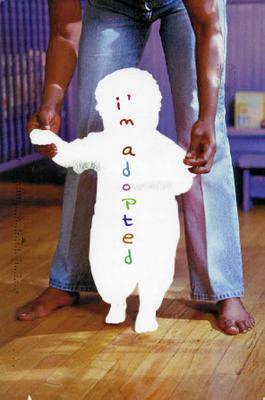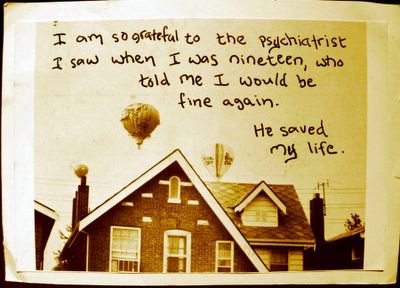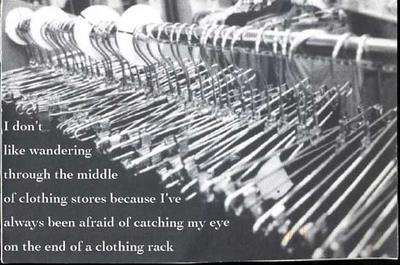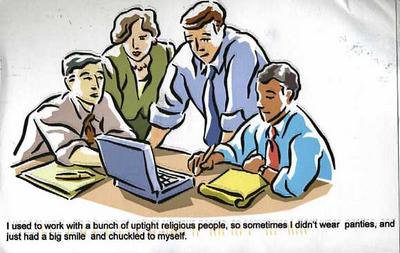‘Postsecret’: art happens accidentally
So I might be the last person with a computer to find out about this thing, but having found it, I’m afraid I can’t stop myself from talking about it here. ‘Postsecret’ is a site initiated by Frank Warren as a project in November 2004 for a Washington art exhibition.
He posted this simple request:
You are invited to anonymously contribute your secrets to PostSecret. Each secret can be a regret, hope, funny experience, unseen kindness, fantasy, belief, fear, betrayal, erotic desire, feeling, confession, or childhood humiliation. Reveal anything - as long as it is true and you have never shared it with anyone before.
Create your own 4-by-6-inch postcards out of any mailable material. But please only put one secret on a card. If you want to share two or more secrets, use multiple postcards.
The results have become an utterly absorbing archive of accidental greatness. Some are self-indulgent, some are downright disturbing, some funny, some scatalogical… and some are really good art.
It’s hard to qualify what I exactly mean by that. One of the most intriguing things about this project is the way it blurs or completely obscures the distinction between art made by a skilled person in a self-consciously aesthetic/expressive way, and naïve art or what is usually called Art Brut.
A given card might be an aesthetically powerful thing, but it’s hard to know whether that represents an achievement by an ordinary person who managed to produce a thing of great quality through the inspiration that emotion gave them, or whether it was the product of someone with artistic experience and resources who was merely attempting to contribute anonymously to the project. Some are simply too polished to be anything else.
When they work as art, and give the viewer a real jolt of recognition or a good laugh, they achieve a certain quality that is irritatingly hard to define but recognisable nevertheless. I think it’s close to what the Surrealists called ‘the marvellous’, that power and universality that made things can achieve when they possess a link to unconscious drives and motivations. When this quality is present, an object can reach beyond and outside itself and become a Symbol. Calculation is not a necessary part of it. In fact, it’s probably undesirable, in just the same way that Freud thought word association and other such games could offer up clues to what was going on under the skin.
It’s probably logical then that my perception of what is good, or funny, or moving in some way, is likely to be influenced by my own experiences in an unconscious way. I mean that someone with a history of an unhappy childhood might be disturbed by this one:

Many allude to a great deal more than their ostensible content. Like this one:
I presume that the sender is a woman, mainly because the warm red cleft down the centre of the picture is so suggestive. But what was this mother/daughter or father/daughter relationship if a 10 year old child can’t spread her legs occasionally? What was going on in that domestic background that a grown adult carries around this memory so vividly?
Many allude to complex and rich back stories, which we can conjure up because they touch on universals in a particularly powerful way. We all know what a difficult adolescence is like, even if ours wasn’t this bad:
The rising hot air balloons in the background are probably collaged additions to the photo, but then again maybe not. Fantastically appropriate, though, they most certainly are. An uncannily good metaphor for a disturbed child's idea of escape.
This next card is the visual equivalent of one of Freud’s case studies, and I think the good doktor might have found it interesting. For some reason, I find it very disturbing.

Themes can be discerned easily in the contributions of only a single week. Sexuality is the natural first, since it’s by nature secret and subject to intense feelings all round, whether they be shame, or regret, or desire for revenge, or just plain old showing off, like the kid with two raised fists who asks "which hand?"
The next most common theme is obviously childhood. Bad childhoods, on the whole, whose dark residue has settled in the mind and continues to distort the sender’s adult life. I suppose the experience of sending a stranger a memento from yesterday’s unhappy childhood is cathartic for many people. Certainly, on the evidence of the written messages of thanks Frank Warren sometimes posts, it is.

.jpg)





1 comment:
Too good, how'd you find out about it??? I remember someone telling me about something similiar a year or so ago but thought nothing of it until this. I think the one I was told about was in UK as some of the stuff I saw was in German,Dutch, Swiss or such.
Post a Comment